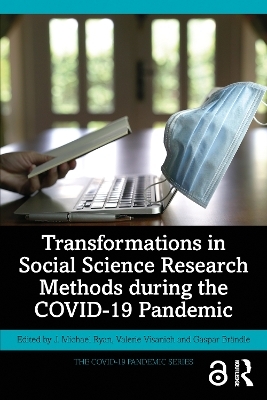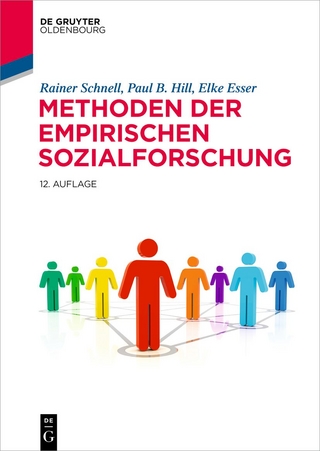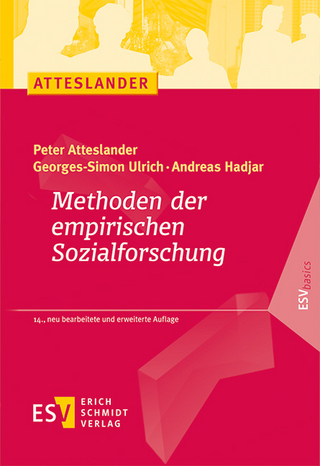
Transformations in Social Science Research Methods during the COVID-19 Pandemic
Routledge (Verlag)
978-1-032-64681-7 (ISBN)
The onset of the COVID-19 pandemic resulted in a radical shift in the way that people all over the world were/have been able to live, work, study, and conduct their daily lives. Academics and other professionals who routinely engage in research were no exception. The sudden, continued, and uneven need for health mandates calling for physical distancing added a particular layer of complexity for those who used research methods that typically required face-to-face interactions. Continued technological developments associated with the Internet had already given rise to ongoing debates on innovative methodological thinking and practices. The COVID-19 pandemic has further accentuated how indispensable the internet has become for the private and public lives of those with access to it, including for their employment, education, leisure, and social interactions. For those fortunate enough to have access to them, communication software such as Zoom and Google Meet have also become indispensable digital resources for researchers seeking to continue conducting research during lockdowns and quarantines, and beyond. More than ever, researchers are finding it useful, even necessary, to equip themselves with online research tools in order to be able to continue conducting their fieldwork.
Drawing on research and case studies from around the world, this volume serves as a guidebook for those interested in attuning their own research methods to a world still struggling to grapple with the impacts of the COVID-19 pandemic.
J. Michael Ryan is an award-winning teacher who has held academic positions at top-ranked universities across five continents. He is currently Professor-Researcher at Pontificia Universidad Católica del Perú, Peru and has previously held academic positions in Ecuador, Egypt, Kazakhstan, Portugal, and the USA. He is the founding editor of Routledge’s The COVID-19 Pandemic series. Valerie Visanich is a Senior Lecturer in Sociology at the University of Malta, Malta. Gaspar Brändle is Professor of Sociology and Chair of the Sociology Department at the University of Murcia, Spain.
1. Accommodating and adapting research during the COVID-19 pandemic Section I: Developing pandemic sensitivities 2. Developing social psychological theory and methods in response to the COVID-19 pandemic 3. Distance discourses: The focus group through digital platforms 4. Batman Gżirjan: Continually revisiting the artistic qualitative research approaches 5. Researching language and communication during the COVID-19 pandemic: A linguistic duo-ethnography Section II: Innovative pandemic methods 6. Disruptions and innovations in sports research during the COVID-19 pandemic 7. Equitable collaborations: Modelling innovative public health research during a pandemic 8. Interviews that heal: Situated resilience and the adaptation of qualitative interviewing during lockdowns Section III: Critical pandemic methodologies 9. Remote interviewing during a global pandemic: A methodological reflection on an ICT-mediated qualitative study implemented during COVID-19 confinement periods 10. The impact of COVID-19 on postgraduate classroom-based research: An African perspective 11. Reflections on methodological reconsiderations and ethical procedures of a postdoctoral researcher 12. Troubled waters, fisherman’s gain: A critical reflection on carrying out multi-sited research in times of COVID-19
| Erscheinungsdatum | 10.07.2024 |
|---|---|
| Reihe/Serie | The COVID-19 Pandemic Series |
| Zusatzinfo | 9 Tables, black and white; 2 Line drawings, black and white; 15 Halftones, black and white; 17 Illustrations, black and white |
| Verlagsort | London |
| Sprache | englisch |
| Maße | 156 x 234 mm |
| Gewicht | 453 g |
| Themenwelt | Sozialwissenschaften ► Soziologie ► Empirische Sozialforschung |
| ISBN-10 | 1-032-64681-0 / 1032646810 |
| ISBN-13 | 978-1-032-64681-7 / 9781032646817 |
| Zustand | Neuware |
| Haben Sie eine Frage zum Produkt? |
aus dem Bereich


